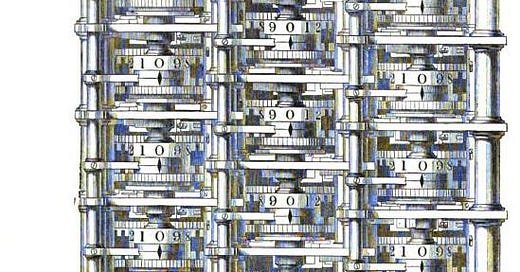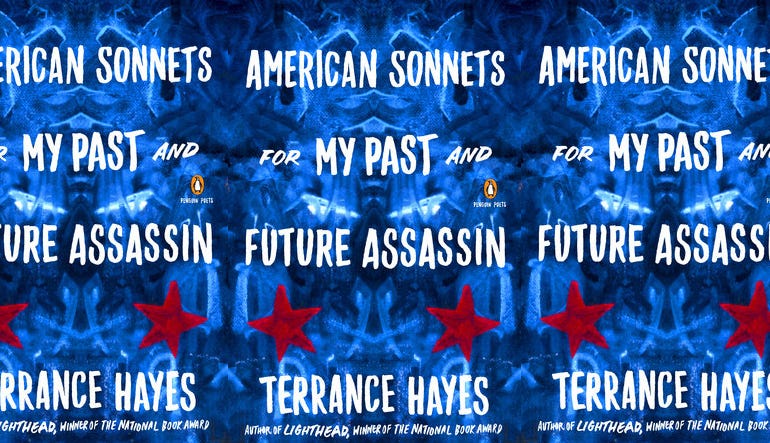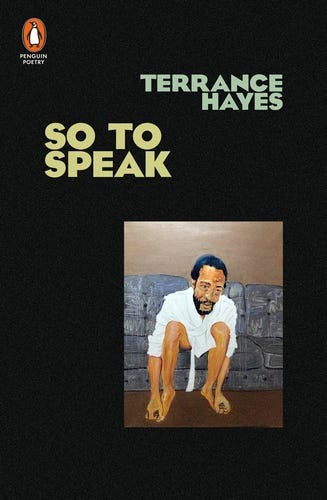Thanks for reading Some Flowers Soon! As I head for my 100th post at the start of December, I’m aiming at 100+ paid subscribers for 2024. So until then, there’s 15% off monthly and annual subscriptions, making it about a cup of coffee per month (hot drink prices may vary):
Terrance Hayes is — I would say “arguably”, but I’m not sure what the counter-argument would be — the most influential poetic formalist of the twenty-first century. With his book Lighthead (2010), he invented a new form: the Golden Shovel, which takes its line-end words from another poem or line of poetry. Hayes named his invention after the pool hall that inspired Gwendolyn Brooks’ laconic portrait of late adolescence, “We Real Cool”, which begins:
Hayes’ poem “The Golden Shovel” begins:
Hayes’ characteristic poetic manner, as this suggests, is a kind of constrained expansiveness, an energetic escapology. His first book was called Muscular Music and his third was called Wind in a Box. His last book, American Sonnets for My Past and Future Assassin (2018), developed a new form: the free-verse fourteen-liner invented by another elder poet, Wanda Coleman. For me, it was one of the essential collections of the last decade, as I wrote in one of my first posts here:
Written every day after the election of Donald Trump, Hayes responded to the victory for white supremacy it represented with driven, mercurial energy. Every time I pick the book up, the pages seem to start moving with living rhythms, like videos on auto-play.
The following “American Sonnet” has become well-known as a summary of the sequence’s formal restlessness and anti-racist imaginary, where the segregationist Jim Crow laws of Hayes’ native South Carolina, for example, are refigured as “gym & crow”:
I lock you in an American sonnet that is part prison,
Part panic closet, a little room in a house set aflame.
I lock you in a form that is part music box, part meat
Grinder to separate the song of the bird from the bone.
I lock your persona in a dream-inducing sleeper hold
While your better selves watch from the bleachers.
I make you both gym & crow here. As the crow
You undergo a beautiful catharsis trapped one night
In the shadows of the gym. As the gym, the feel of crow-
Shit dropping to your floors is not unlike the stars
Falling from the pep rally posters on your walls.
I make you a box of darkness with a bird in its heart.
Voltas of acoustics, instinct & metaphor. It is not enough
To love you. It is not enough to want you destroyed.
Hayes’s recently-published seventh collection, So To Speak, includes further “American Sonnets”. But it also offers something new again: the “Do-It-Yourself Sestina”, a formal concept — and, as I argue below, a kind of conceptual poem — which combines elements of his previous experiments in a new complexity.
Like The Golden Shovel, the traditional sestina is structured around a set of fixed end-words. But, like a traditional sonnet, it also has a predetermined number of lines (39). Here is Hayes’ summary of what he sees as “the most rigid of poetic forms”:
Keep reading with a 7-day free trial
Subscribe to Some Flowers Soon to keep reading this post and get 7 days of free access to the full post archives.








